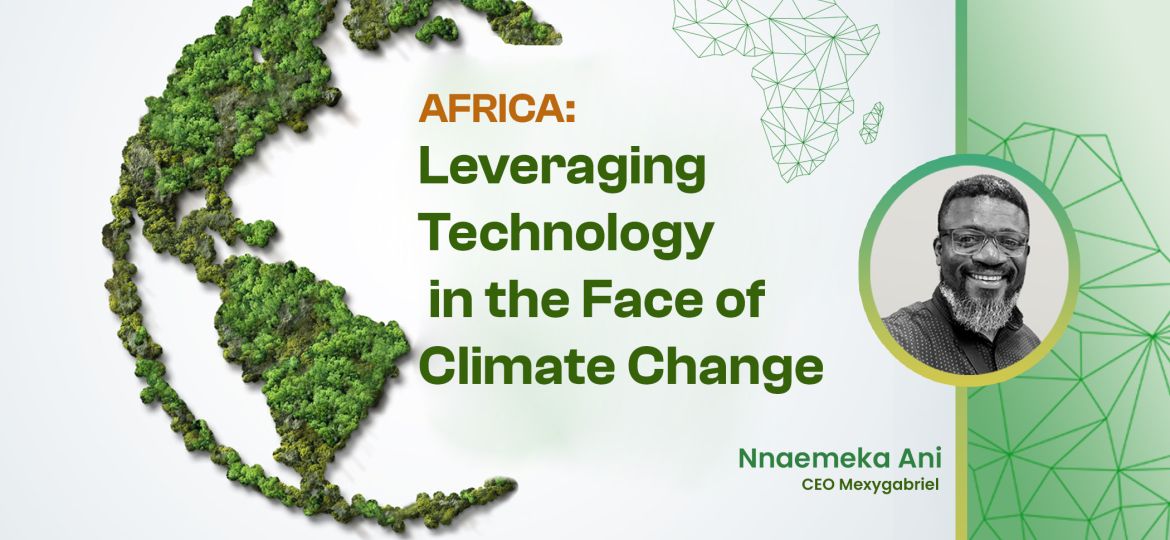
As the effects of climate change become more severe around the world, Africa has reached a tipping point when harnessing technology is no longer an option but a requirement. With its abundant natural resources and different ecosystems, the continent faces unique difficulties that necessitate creative solutions. Africa has to embrace and use technology as a critical weapon in the fight against climate change, and this article explains why.
From dry deserts to lush rainforests, Africa is home to some of the world’s most fragile ecosystems. Technology allows for the monitoring, analysis, and protection of these ecosystems. Real-time data from satellite imagery, drones, and remote sensing technology can help conservationists and policymakers make educated decisions and put preventative measures in place to protect biodiversity.
Agriculture is the backbone of many African economies, and it is especially sensitive to climate change. Precision agriculture and climate-smart farming practices, for example, enable farmers to optimise resource use, adapt to changing weather patterns, and assure food security. Access to weather forecasts, soil health data, and market information via digital platforms improves agricultural resilience even more.
Africa has an abundance of renewable energy resources, such as solar and wind power. By embracing technology in the form of solar panels, wind turbines, and innovative energy storage systems, the continent may be propelled towards sustainable and clean energy. Decentralised renewable energy projects can offer electricity to rural places, lowering dependency on fossil fuels and lessening climate change effects.
In the face of changing climate trends, effective water management is crucial. Technology enables the creation of smart irrigation systems, water recycling programmes, and real-time water quality monitoring. These solutions not only secure the long-term use of water resources, but they also improve resistance to droughts and floods.
Forests have an important role in carbon sequestration and climate regulation. Satellite photography and GIS analysis, for example, can monitor deforestation in real time. African governments may prevent illegal logging, police conservation initiatives, and promote sustainable forest management practices by utilising digital tools.
Waste management is becoming more difficult as cities grow in size. Smart waste management systems and recycling technologies, for example, can optimise garbage collection routes, reduce pollution, and lessen the ecological impact of plastic and electronic waste.
For vulnerable communities, accurate climate information is critical. Technology supports the development of climate information services, which provide farmers, policymakers, and communities with timely weather forecasts, early warnings, and actionable data. Mobile and web-based applications can help individuals bridge knowledge gaps and make educated decisions.
The technological revolution has created a space for creativity and research. African scientists, engineers, and entrepreneurs can use technology to create context-specific climate solutions. Innovation and research hubs can help to drive the development of cutting-edge technology that solve local climate challenges.
By embracing technology, Africa may position itself as a global leader in sustainable development. African governments can develop engagement with the international community by demonstrating effective technical interventions. Access to global alliances, finance, and information exchange can increase technology’s influence in addressing climate change.
Technology is an effective tool for engaging adolescents and encouraging environmental advocacy. Social media, digital platforms, and online initiatives have the potential to engage the younger generation in climate action. The digital world’s interconnectedness allows for the formation of a worldwide community dedicated to environmental stewardship.
In a nutshell, the use of technology is not simply an opportunity for Africa; it is a need in the face of climate change. The continent can handle the difficulties of climate change by embracing new ideas, promoting collaboration, and using the power of technology. The moment has come for Africa to fully realise the potential of technology in protecting its environment, economy, and communities.

